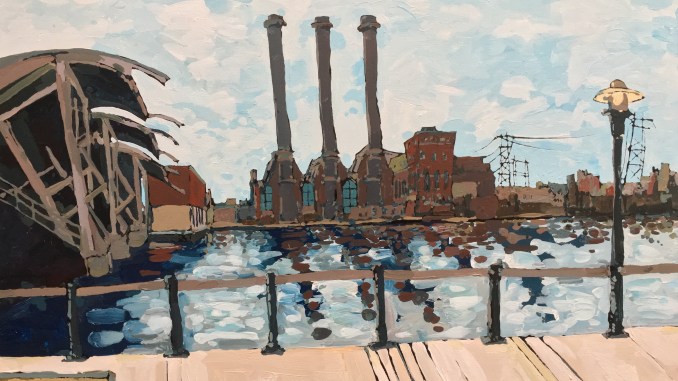Rhode Island’s central landfill will reach its capacity in 2038 if we continue throwing away food waste, and food scraps that end up in landfill produce the powerful greenhouse gas methane. Composting food scraps and yard waste reduces methane production and the land used for landfills. Household action: The basics of home composting: add […]
Climate change has the power to disrupt and endanger every natural and social system that we’re part of: our food, our health care, our homes, our surroundings. These systems can also help us survive the strains that climate change will place on all of us. Many of these relationships have to do with how we […]
This is a guide to actions that we in Rhode Island, in our households and communities, can take to reduce the state’s contributions to climate change. It’s also a guide to building relationships—with each other and with the natural world—that will create a larger cultural and political shift away from a fossil fuel economy, toward […]
Our Rhode Island—the one we know today—is set up to depend on fossil fuels. Where we live, work, shop and learn–our suburbs and subdivisions, shopping plazas and malls, corporate and college campuses—require most of us to drive. Our economy, which leans on consumer spending now that we don’t have as much industry as we once […]
Using this manual is straightforward and easy. You don’t have to go through it in sequence, and you don’t have to read all of it to make a difference in your life—and in the lives of those in your community who are already feeling the impacts of climate change. The manual is organized by topic. […]
Many of our jobs require us to use computers, phones and/or tablets at work and in our homes. These devices also provide us with pleasure, distraction, and connection. Right now, they’re made and shipped in fossil-fuel-intensive ways, but there are ways to power and use them that can reduce their contribution to climate change. […]
RISE home energy assessments are free, extremely thorough, and available to tenants, homeowners and owners of commercial properties. Our electric bills include charges to pay for this service—let’s get what we’re paying for. Since some of the renovations may be expensive, National Grid also provides substantial discounts if you follow the recommendations in the home energy assessment. You […]
19% of RI’s energy use is related to residential heating and hot water, and other activities in our homes use fossil fuels as well. We can reduce our emissions by reducing our energy use overall, and by speeding up the state’s transition to renewable energy sources. Rhode Island has invested $80-100 million in helping people […]
We no longer rise and go to bed with the sun, so we need to light our homes and workplaces. Light Emitting Diode (LED) bulbs give brighter light than other bulbs that use the same amount of energy, lowering costs as well as emissions. Unlike tube and compact fluorescent bulbs, they don’t contain poisonous mercury, […]
Refrigerators save lives—people used to die of food poisoning much more frequently—and dishwashers and laundry machines save the time and sanity of whoever does the housework. But when we use them inefficiently, we’re outsourcing that suffering to people elsewhere and to future generations. These actions do involve some time and work, but you’ll reduce your […]

